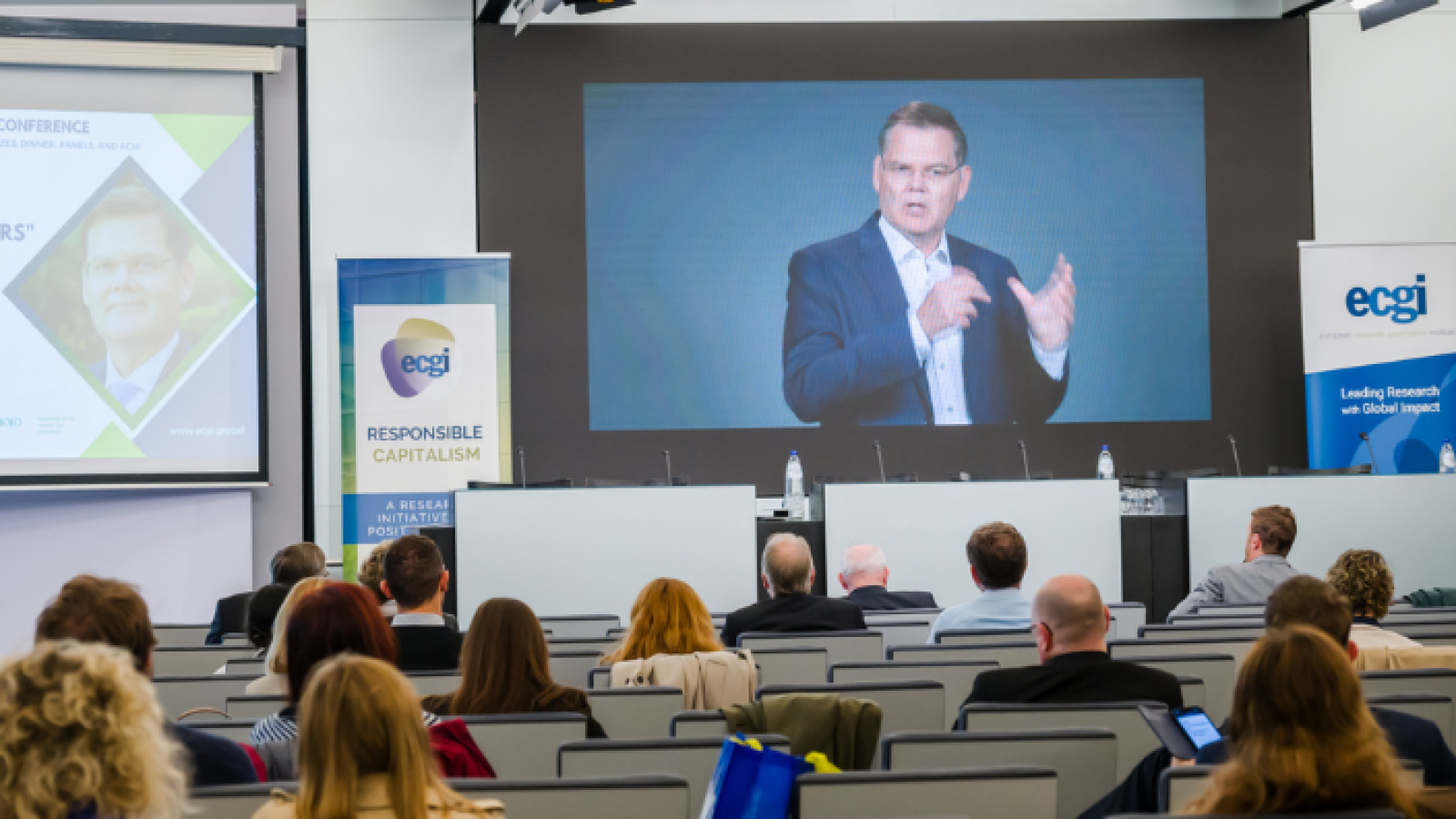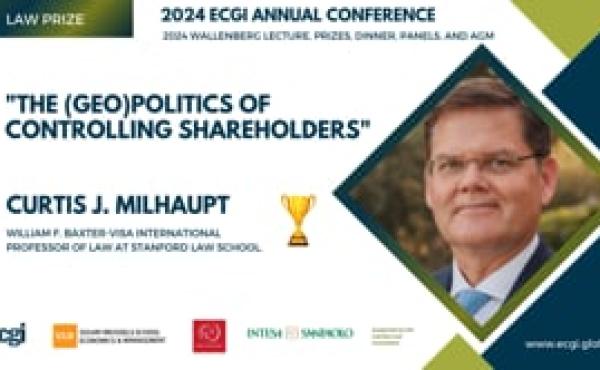
The ECGI blog is kindly supported by

Prize Award: The (Geo)Politics of Controlling Shareholders
Luca Enriques introduced the ECGI Law Prize winner, Curtis Milhaupt, during the Working Paper Prize Session. Enriques highlighted the significance of Milhaupt’s paper, "The Geopolitics of Controlling Shareholders," noting its exploration of how controlling shareholders wield not only economic but also political influence, extending their power beyond traditional corporate boundaries. He referenced Elon Musk as an example of a “geopolitical chaos agent,” illustrating Milhaupt's argument that certain influential corporate figures exert considerable impact in global and national political arenas. Enriques praised the paper for pushing corporate governance scholars to consider the far-reaching effects of corporate control, particularly in contexts involving national security and geopolitics.
Curtis Milhaupt presented the prize-winning paper, by video. It reframed the role of controlling shareholders by examining their influence in a geopolitical context. Traditional governance models focus on agency issues between management and shareholders, but Milhaupt extended this analysis to reveal how controlling shareholders, such as state actors and tech founders, wield political and economic power beyond the firm’s boundaries. By including examples like the Lee family’s control over Samsung and Elon Musk’s influence through Starlink, Milhaupt argued that these shareholders not only impact firm behavior but also shape national and international policies—a dynamic with significant governance implications.
A striking aspect of Milhaupt’s argument was his critique of dual-class share structures, which, he suggested, offer controlling shareholders unchecked power with limited accountability. He connected these structures to wider geopolitical risks, noting that founders often leverage dual-class shares to build political as well as economic power. This analysis raised a critical question: how can governance frameworks balance the need for visionary leadership with safeguards against concentrated power that could undermine democratic or economic stability?
Milhaupt’s work underscored the need for policy reforms that address the intersection of corporate governance and national security. He called for nuanced policies that consider the broader geopolitical ramifications of concentrated control, especially in industries like technology and energy, which have significant national security implications. Milhaupt’s approach not only challenged traditional governance assumptions but also emphasized the evolving role of corporations in global geopolitics, suggesting that policymakers need to rethink governance standards to manage these multi-dimensional risks.
_______________
This article is Part Seven of a seven-part blog series covering insights and reflections from the 2024 ECGI Annual Conference.
Explore the rest of the posts: read Part One, read Part Two, read Part Three, read Part Four, read Part Five, and read Part Six.
Related materials
Curtis J. Milhaupt (Stanford University and ECGI), winner of the 2024 ECGI Law Paper Prize, virtually presented his paper, 'The (Geo)Politics of Controlling Shareholders'.
Access the presentation slides here.






